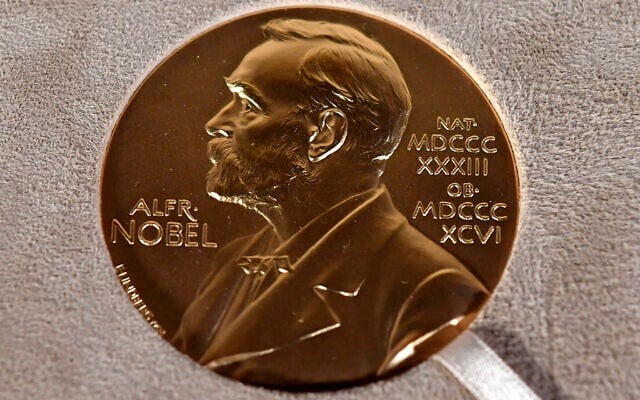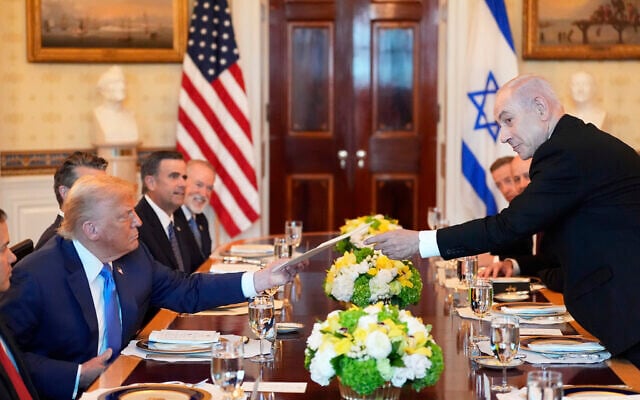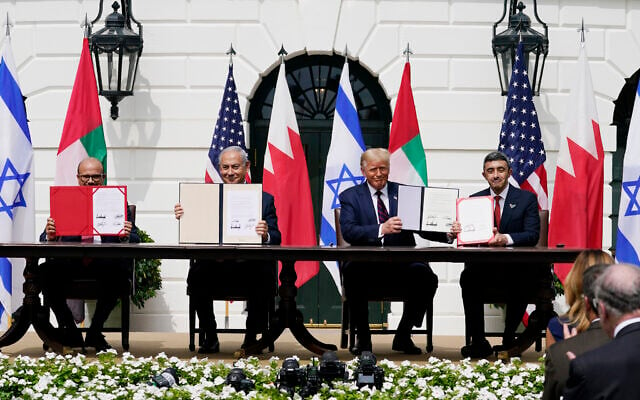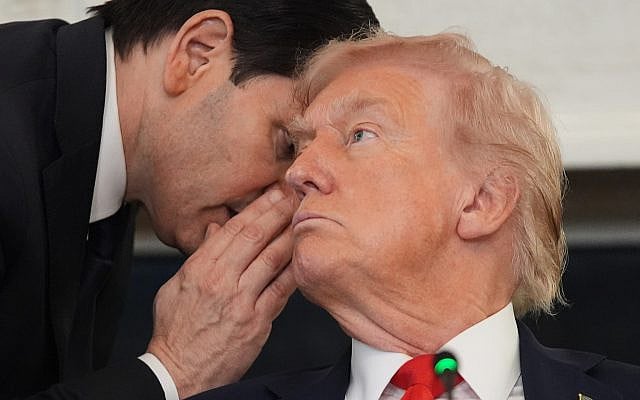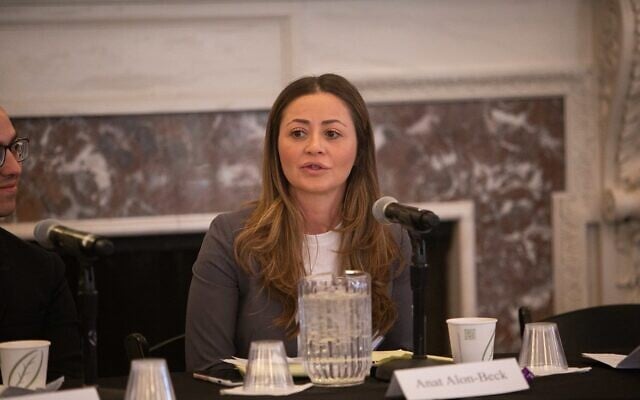

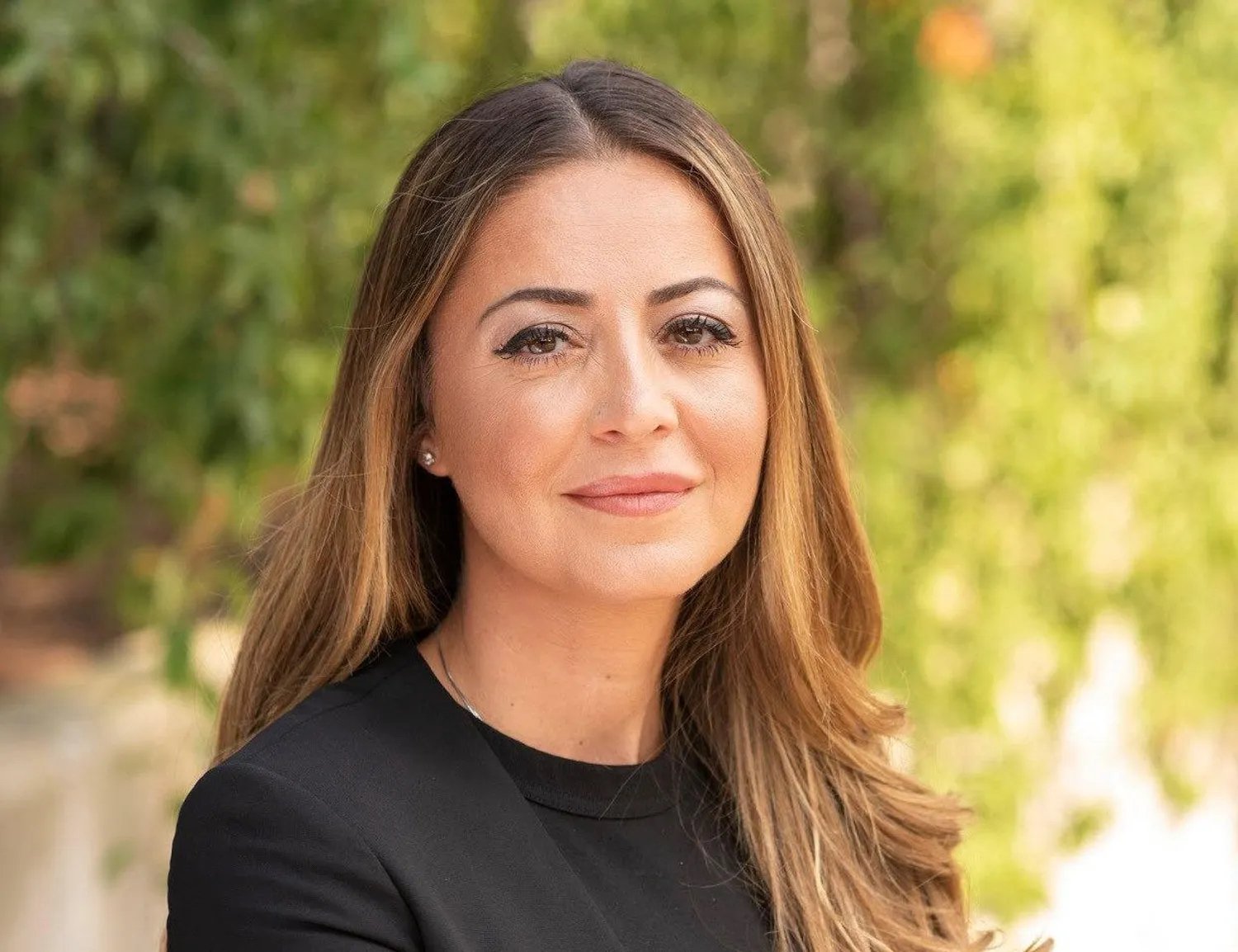
With all eyes on Oslo ahead of Friday’s announcement of the 2025 Nobel Peace Prize winner, US President Donald Trump has made no secret of his desire to claim the coveted title.
In recent months, as diplomatic efforts to end the Israel-Hamas war gained momentum, a growing number of Trump supporters publicly said they nominated him for the honor.
However, under the Nobel Committee’s rules, only nominations submitted by January 31, 2025, and by individuals authorized to do so, are considered valid. These include national lawmakers, university professors, previous laureates, and members of international courts.
Among those eligible was Professor Anat Alon-Beck, an Israeli-American scholar of corporate and securities law based in Cleveland, Ohio.
Alon-Beck, who is eligible in her capacity as a tenured professor of law at Case Western Reserve University, formally submitted Trump’s candidacy for the Nobel Peace Prize ahead of the deadline — a move she says was motivated not by politics but by a personal hope: to help bring home the remaining hostages held in Gaza.
Shortly before Israel and Hamas reached an agreement Thursday night on the first phase of President Trump’s 20-point plan to secure the release of all hostages and end the war in Gaza, The Times of Israel spoke with Alon-Beck about her decision to nominate Trump and her reasoning behind it.
Currently a visiting scholar at Harvard Law School, Alon-Beck said her submission was driven by moral conviction rather than partisanship, emphasizing that her aim was humanitarian, not political.
Alon-Beck highlighted the release of the hostages as the central basis for the nomination, referring to those freed beginning January 19, 2025, under the then-agreed Israel-Hamas prisoner-exchange framework that was made possible due to pressure from Trump’s aides in the days leading to his swearing in for his second term at the White House.
Alon-Beck said her thoughts back then were with the hostages still held in Gaza and with the steps needed to end the war.
“I submitted his name to the Nobel Committee because I wanted there to be an incentive to bring the hostages home,” she said. “President Trump has always said he is committed to that. I attended his inauguration in Washington, on January 20, 2025, and right afterward I consulted with several people.”
“Many thought it was too early and didn’t understand why I was taking this step,” she recalled.
“Among other things, I read the work of Dr. Kobi Barda, [an expert on US-Israel relations,] on the subject, including his research on the submission rules for the Nobel Peace Prize, and I realized it was essential to meet the committee’s deadline – so I filed on time.”
Three months ago, during Prime Minister Benjamin Netanyahu’s visit to Washington, he handed President Trump a letter of recommendation for the Nobel Peace Prize. Netanyahu presumably knew the gesture was largely symbolic as far as this year’s award was concerned, since the Nobel Committee would not formally take his letter into account.
If Trump is indeed a candidate for the prize, it will be thanks to Alon-Beck’s submission and that of Republican Congresswoman Claudia Tenney of New York, a vocal Trump ally who serves on the House Foreign Affairs Committee and separately nominated him. It is not clear that there were any other eligible submissions.
Tenney submitted Trump’s nomination for the Nobel Peace Prize as far back as December 2024, having also nominated him the year before – although the reasons she cited in both instances has to do with the Abraham Accords between Israel, the UAE and Bahrain that were signed in September 2020, during Trump’s first term as US president.
Alon-Beck’s reasoning was more current. In her written submission to the Nobel committee, Alon-Beck stated: “The return of the hostages – my brothers and sisters – was not only a diplomatic milestone but also a profound personal and moral victory. These innocent people were taken from their homes and families, held in captivity under cruel conditions, and used as bargaining chips in a war against human civilization itself.”
“Their return was an act of justice and humanity, and President Trump played a decisive role in achieving it,” Alon-Beck continued. “What distinguishes President Trump is his ability to deliver meaningful results through determined leadership. Under his guidance, a historic ceasefire agreement was reached, bringing home hostages whose lives were hanging by a thread.”
“I simply wrote what was on my heart and what seemed right at that moment,” she explained to The Times of Israel. “The interesting detail is that under the Nobel Committee’s rules, there are five categories of people or entities eligible to nominate candidates — and one of them is a professor of law.
“About a week earlier, I had received notice from my university of my promotion to the rank of tenured professor, along with a letter from the dean informing me that as a law professor, I was now authorized to submit Nobel nominations. Of course, it was a standard letter, and he could never have imagined I’d use it so quickly.”
Asked about the public letters of support, such as Netanyahu’s and one sent by the hostages’ families last week, Alon-Beck explained: “These are letters of encouragement. They help ensure that the entire world keeps talking about the issue. The committee members are not immune to public discourse, and such letters act as a kind of ‘influence campaign.’ They are not, of course, the nomination itself.”
“None of that matters to me personally,” she said. “I don’t care about my own role in this – only that the hostages come home. I truly believe it can happen, and that President Trump could receive the prize.”
“On a personal level, I’ve lived in the US for decades, and this war has shaken us deeply,” Alon-Beck continued. “We wanted to be involved in supporting the hostages’ families, so at the start of the war, a group of Israeli academics and lawyers in the US formed a nonprofit organization called the National Jewish Advocacy Center, which files lawsuits in federal courts on issues related to antisemitism and terrorism.
“One of the cases, for example, is against an American media outlet called Palestine Chronicle, which employed a ‘journalist’ in Gaza who also held hostages in his home. We sued the outlet under the Material Support of Terror provisions – a rarely used clause of the US Patriot Act that criminalizes providing aid or services to designated terrorist groups – and the case is currently in the affidavit stage.”
She added that over the past two years her group has built relationships with many of the hostages’ families and that all of its efforts are aimed at securing the hostages’ release and helping bring the war to an end.
“This war is causing Israel immense diplomatic and reputational damage internationally,” she said, “and it’s crucial to bring it to an end. Releasing the hostages is the key to that.”
Despite the growing discussion about granting the Nobel Peace Prize to Trump, analysts familiar with the committee’s workings believe he is unlikely to win this year.
The reasons vary: his threats against Denmark over Greenland, his aggressive stance toward migrant workers in the US, his rejection of international institutions, and — perhaps most notably — his denial of climate change.
Trump’s supporters cite the precedent of president Barack Obama, who received the Nobel Peace Prize in 2009 shortly after taking office, despite limited achievements cited at the time. It’s possible the committee will disregard Trump’s candidacy this year but will consider it in 2026, if and when all hostages have been freed from Gaza.


